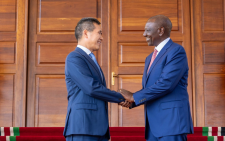Two weeks ago, the leaders of the world’s largest economies, China and the United States, met in Lima, Peru, on the sidelines of the 2024 Asia-Pacific Economic Cooperation (APEC) meeting. The key takeaway from the meeting between President Joe Biden and President Xi Jinping was the shared understanding that stronger Washington-Beijing ties are essential for the global economy.
The US and China are global leaders in nearly every aspect of human life, and friction between them can have a polarising effect worldwide, often disrupting global supply chains and impacting people globally. For years, the US and its Western allies maintained the status quo in areas like trade, technology, military power, and agriculture. However, China’s meteoric rise has caused a shift, with many now playing catch-up, as China has surpassed the US in various fields, creating unease among the world’s established powers.
Although President Biden acknowledged that the US-China relationship is the most critical bilateral relationship for the future of the world, president-elect Donald Trump seems determined to weaken these ties. Such actions could lead to disastrous consequences for the global economy. As a global leader, the US should not fear China’s rapid advancements but should instead foster fair competition with Beijing that avoids conflict. This approach is something that Trump should consider when he returns to office next year.
When disputes arise between the two nations, open dialogue is essential to maintaining diplomatic relations. Neither decoupling nor disruptions in supply chains will solve issues; instead, common development can only be achieved through mutually beneficial cooperation. While both countries are trying to reduce their dependence on one another, decoupling could have significant economic consequences. For instance, the US aviation industry could lose up to $875 billion, the semiconductor industry $159 billion, and medical services $479 billion.
The era of imposing national development interests on other sovereign states through protectionism is over. Multilateralism is the way forward, and the US and China must explore the best path for two major countries to coexist peacefully, ensuring a positive impact on the world. The world is still recovering from numerous challenges, including the Russia-Ukraine conflict, climate change, and rising energy costs. In such a turbulent global environment, the US and China should avoid any trade wars that could destabilise the world economy.
China has repeatedly expressed its willingness to engage in dialogue on issues that may strain US-China relations, such as Taiwan. President Biden has emphasised the US commitment to international law and freedom of navigation, while maintaining the “One China” policy, guided by the Taiwan Relations Act, the three Joint Communiques, and the Six Assurances. In this context, Washington should refrain from militarizing Taiwan, as this would ease tensions between the two powers.
China and the United States must always keep in mind the future of humanity and their responsibilities for global peace. They should work towards providing global public goods, avoid mutual attrition, and refrain from pressuring other countries to choose sides.
— The writer is a Journalist and Communication Consultant


















